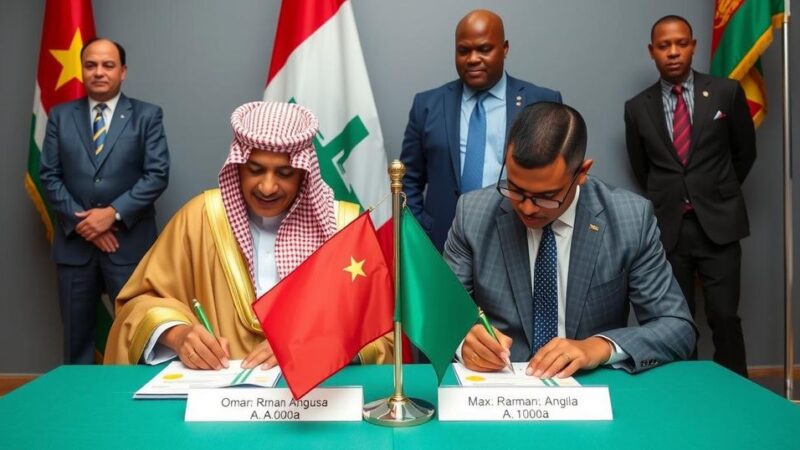Audi remains committed to its Formula 1 project, despite the financial crises faced by Volkswagen Group. The sale of a minority stake in its F1 team to the Qatar Investment Authority is seen as a strategic investment rather than a response to current challenges. Audi CEO Gernot Dollner emphasized the importance of investment for the company’s transformation and competitive success in Formula 1.
Audi has confirmed its steadfast commitment to Formula 1, despite the financial turmoil affecting its parent company, Volkswagen Group. During the Qatar Grand Prix, Audi CEO Gernot Dollner highlighted that the decision to maintain financial involvement in Formula 1 is rooted in strategic business planning and the necessity for transformation within Audi. This statement comes alongside Audi’s announcement of a sale of a minority stake in its Formula 1 team to the Qatar Investment Authority (QIA), aimed at strengthening its competitive edge in the sport. Dollner emphasized that this partnership had been in development for over a year and was not a direct response to current financial challenges faced by Volkswagen.
Dollner articulated that while Volkswagen Group is implementing significant cost-cutting measures, including factory closures and layoffs, Audi remains focused on investment as a means to secure its future in Formula 1. He stated, “You can’t build a future by only saving money. You have to invest”. The influx of capital from the QIA is intended for enhancing Audi’s Sauber team and accelerating its improvement efforts to bridge the competitive gap with leading teams. Although specific details regarding the investment amount were not disclosed, reports suggest that QIA might acquire approximately 30% of the team for around $350 million.
The current challenges facing Volkswagen Group, including financial losses and organizational restructuring, have raised questions regarding the impact on its subsidiaries like Audi. Historically, automotive manufacturers have faced pressures to align their spending with broader corporate strategies during economic downturns. However, Audi’s commitment to Formula 1, as articulated by CEO Gernot Dollner, highlights a strategic pivot that capitalizes on investment rather than austerity to drive growth, specifically within the high-profile arena of Formula 1 racing. This article presents a clear distinction between broader corporate challenges and dedicated investments in specific projects, underscored by the potential for collaboration with significant external partners, such as the Qatar Investment Authority.
In summary, Audi’s reaffirmed dedication to its Formula 1 project amidst the Volkswagen Group’s financial difficulties demonstrates a proactive approach towards investment rather than retrenchment. The partnership with the Qatar Investment Authority is positioned as a long-term strategy rather than a reactive measure to immediate financial pressures. By pursuing significant investments in its Formula 1 endeavors, Audi aims to navigate the complexities of transformation while enhancing its competitive capabilities. Dollner’s insights reinforce the notion that in the evolving automotive landscape, investment strategies are pivotal for sustainability and success in high-stakes environments such as Formula 1.
Original Source: www.autosport.com







